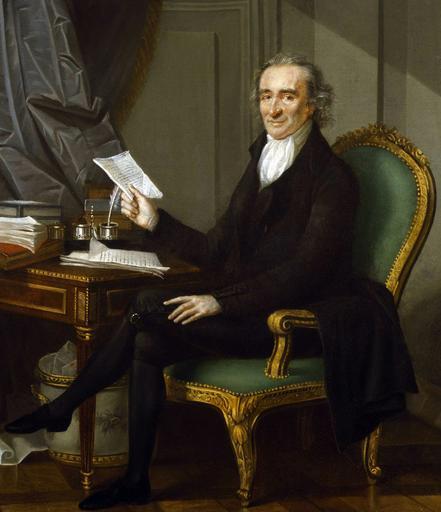
Thomas Paine is one of the most significant political thinkers in American history. Paine’s pamphlet Common Sense inspired a revolutionary vision and mainstreamed the concepts of democracy, self-determinism, and equality. Along with his advocacy for democratic governance, Paine’s critique of monarchy displayed its vast contradictions & illegitimacy. “But how a race of men came into the world so exalted above the rest and distinguished like some new species” (Common Sense, 11). Whether it’s Kings or Oligarchs, Paine highlights that such vast amounts of political and social inequality cannot be natural unless monarchs are a separate race from the rest of humanity, which is obviously laughable.
In Paine’s view, inequality was justified through the customs and traditions that legitimize arbitrary power. Because Paine understood these inequalities were merely a social construction of elites, rather than a result of natural inequality, he recognized the fight to expand democracy & equality was purely a matter of political will: “We have the power to make the world over again” (Common Sense, Appendix). This was Paine’s call to revolution & restructuring of our political and social order to mirror what he saw as our natural inclination of solidarity and interdependence. Paine’s rejection of tradition, questioning of authority, & the pursuit of social equality & democracy has had a profound impact on the boldest & transformative political moments in US History, including Reconstruction.
The Second Founding
The Reconstruction Era is the period following the American Civil War, in which the push for material freedoms for African Americans such as voting rights, political representation, & economic security began to take place. Reconstruction was a period of transformative politics that was meant to expand & uphold those fundamental rights of democracy, equality, and liberty for all. Although Reconstruction failed in 1877 following the white supremacist backlash & implementation of Jim Crow, it was a template for radical social & political change that Paine spoke of in the late 1700s. The attempt to redefine our economic & political systems to reflect an egalitarian worldview that recognizes the human & civil rights of African Americans, against the will of the plantation class of the 1860s, shows the influence of Paine’s ideas. The Radical Republicans understood Paine’s call to “make the world over again”. They rejected the conventional wisdom, arbitrary authority, & unjust laws that were meant to legitimize the unequal & anti-democratic reality of the United States in the 1800s. The Radicals Republicans saw that transformative economic & social change was necessary to fulfill America’s promise to African Americans, just as Paine realized during the Revolutionary Era that transformation was needed for the colonists to have the rights to self-determination & self-governance.
The Greatest Generation
Paine’s vision re-emerged once again in the 1930s, with the election of Franklin Roosevelt, the implementation of the New Deal, & a call to action for the American people to embrace their “rendezvous with destiny” (FDR quoted this original Paine quote in his re-nomination acceptance speech in 1936). The quote speaks on the connection between the Founder Revolutionaries and the Greatest Generation, both of who opposed conformity & pursued justice through transformative collective demands. Again, we see Paine’s ideas reemerge during a time of conflict & struggle but also an opportunity for change. The demands of the Labor Movement pushed Roosevelt to intact a variety of programs & policies to not only provide relief and recovery to Americans impacted by the Great Depression, but to yet again expand the American promise of democracy, equality, & liberty. Roosevelt & the Labor Movement recognized that freedom in the 20th century cannot be actualized without material economic security ( i.e. freedom from poverty, starvation wage, homelessness, etc). The establishment of the minimum wage, social security, & the right to unionize was all a product of this new & radical view of the government’s role in the economy. Some have argued that these ideologies have strongly contributed to the furthering of a socialistic framework within the progressive wing of the modern Democratic party. They argue, in order to have a free society, our individual rights shouldn’t come at the exclusion of collective security and freedom including rights to healthcare, a living wage, housing, college education, and more.
The common theme here is that the conventional wisdom of each era heavily influenced opposition to the expansion of democracy. Most politicians during the 1870s abandoned the push for civil rights and economic freedom for African Americans & mainstream neoclassical economists in the 1930s rejected the economic theories espoused by the New Deal coalition. Thomas Paine’s vision served as a catalyst to break from this traditionalist worldview, question the legitimacy of authority, & constantly demand a transformative change of illegitimate structures and systems under his reasoning. Paine saw the despotism of The Crown firsthand & wrote about the need for Revolution in Common Sense in 1776 & still, his influence lives on centuries later through the revolutionary politics of modern American history.
